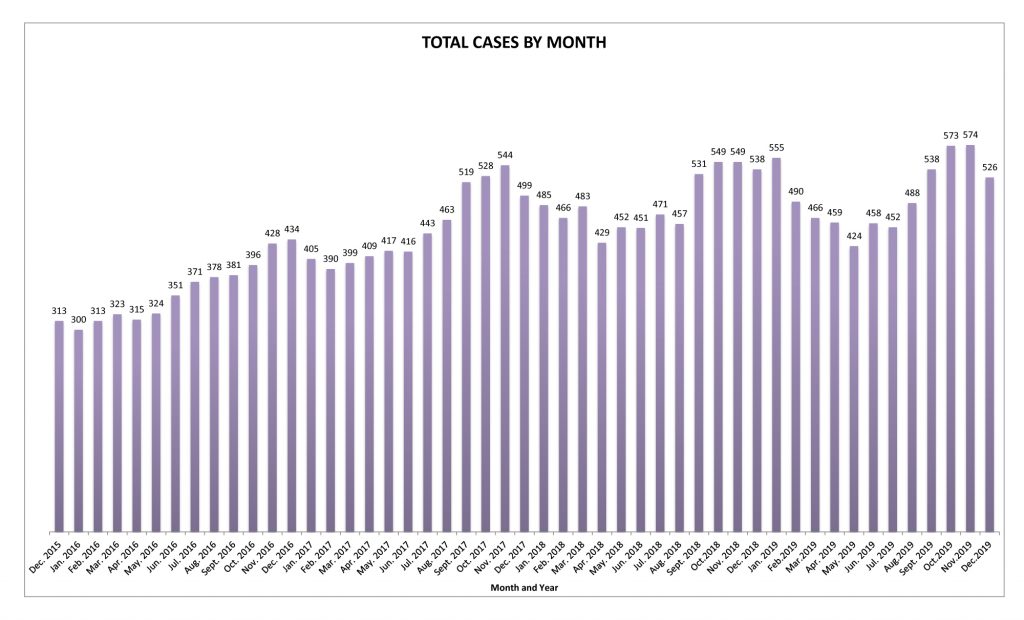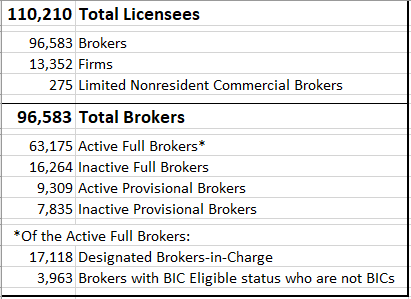Bulletin Search
Self-Dealing
A Regulatory Affairs Case Study
By Rob Patchett
As fiduciaries, brokers are required to place their clients’ interests above their own interests. This also means that brokers are prohibited from engaging in self-dealing. In one case, a broker went to great lengths to attempt to purchase a condominium from her client at well below market value.
Respondent Broker was the qualifying broker and broker-in-charge of her solo firm. Her husband’s lease on a condominium was approaching its termination and the owner contacted Respondent Broker and her husband to see if they would purchase the condo at the end of the tenancy. Respondent Broker and her husband decided not to purchase the condominium, but Respondent Broker offered to list the condo for the owner. Respondent Broker represented to the owner-seller she knew investors who were interested in purchasing a condominium. The owner-seller and Respondent Broker executed a six-month exclusive listing agreement with a 5% commission at a list price of $226,000.
After several weeks, Respondent Broker informed her seller-client that the potential investors were not interested in making an offer on the condominium, but her husband had renewed interest in purchasing the condominium. The seller-client spoke directly to Respondent Broker’s husband who offered $215,000 to purchase the condominium; the seller rejected his offer. At this time, Respondent Broker had never publically advertised the condominium for sale.
Suspicious, the seller spoke to another broker about the sale of his condominium. This broker was shocked to hear the list price was so low. He informed the seller that his condominium should be listed between $250,000 and $270,000 based upon recent sales. After learning this information, the seller-client emailed Respondent Broker asking to terminate the listing agreement. The broker refused to terminate the agreement.
A few weeks later, Respondent Broker emailed her seller-client a letter purportedly from Respondent Broker’s attorney. The letter demanded the seller-client accept the husband’s offer because it was a “full-price” offer. The seller-client was given two options for accepting the offer. He could sell the condominium to the husband for $215,000 and not pay Respondent Broker a commission or sell the condominium for $226,000 and pay a 5% commission. The letter was unsigned and contained several factual and typographical errors. During the course of the Commission’s investigation, the Commission’s Consumer Protection Officer confirmed that the attorney did not draft, sign, or send the letter to the seller. Evidence tends to indicate that either Respondent Broker or her husband drafted the letter purporting to be an attorney.
The seller-client rejected all of the husband’s offers. Respondent Broker then demanded her seller-client pay her commission for bringing a “ready, willing, and able buyer” that he rejected. The seller-client declined to pay Respondent Broker’s commission. Several months later, the seller-client sold his condominium for $269,000.
In this case, Respondent Broker’s only concern was for her personal gain. She attempted to buy her client’s condominium below market value by misrepresenting the fair market value to her client. She also attempted to force her seller-client into selling by sending a fictitious attorney demand letter. Finally, she attempted to collect a commission by claiming she brought a legitimate “ready, willing, and able buyer” to her seller-client. Following the investigation, the broker surrendered her license and that of her firm.
Brokers owe fiduciary duties to their clients. These fiduciary duties prohibit brokers from self-dealing. Commission rule 58A .0104(p) specifically requires listing brokers to disclose in writing conflicts of interest, transfer or terminate listing agreements, and notify the seller-client that they may terminate the listing agreement prior to entering into a contract for a property that the listing broker or firm is listing. Furthermore, North Carolina General Statute 93A-6(a)(8) and (10) gives the Commission authority to discipline brokers who are unworthy or incompetent to act as real estate brokers in a manner as to endanger the interest of the public and for conduct which constitutes improper, fraudulent, or dishonest dealing, respectively.
“When Personal Property Disappears …”
A Regulatory Affairs Case Study
By Danielle M. Alston, Consumer Protection Auditor
The complaining witness in this case was a seller whose home was listed by an agent. The Respondents were a provisional broker acting as a buyer agent and her Broker-in-Charge (BIC).
The Buyer Agent scheduled a showing of the subject property and the Seller approved it. Shortly after the showing, the Seller contacted the Buyer Agent very upset, alleging that the buyers had taken some prescription medications that were “well hidden” in the Seller’s master bathroom.
During the investigation, the Buyer Agent stated she was contacted by a woman through social media expressing her interest in seeing the property with her husband. The Buyer Agent stated that she met the couple at the property as opposed to her normal practice of meeting prospective buyers at her office or a public place prior to showing the home. She explained that the opportunity of getting a badly-needed client outweighed her usual, more cautious approach. Upon arriving at the property, the Buyer Agent said she reviewed the “Working With Real Estate Agents” brochure with the couple, who stated that they would sign it after the showing was complete. The Buyer Agent did not check the buyers IDs or even get their names.
When she was showing the first-floor master bedroom, the buyer-wife indicated that she needed to use the bathroom. The Buyer Agent planned to wait for the wife to exit the bathroom, but the husband began walking out of the master bedroom while asking questions, so the Buyer Agent followed him to answer his questions. The husband inquired about the upstairs, so the Buyer Agent showed the upstairs to him while his wife was still in the bathroom. By the time the Buyer Agent came back downstairs with the husband, the wife was in the kitchen and the Buyer Agent heard a cabinet door close. The Buyer Agent indicated that she was not concerned as buyers typically inspect cabinets.
The Buyer Agent indicated that she attempted to ask the couple several follow-up questions as they began to leave. The wife wrote down a contact number at the request of the Respondent Broker and then left without signing the “Working With Real Estate Agents” disclosure. The contact number allegedly provided by the buyers was not a valid number.
Later, the Seller called the police and reported the theft of her prescription medication. An officer explained to the Seller that this was a somewhat common scam for two people to pose as interested buyers in order to steal things from a home. The officer also contacted the Buyer Agent that night for her version of the incident.
The evidence in this case tended to show that the unidentified potential buyers were responsible for the Seller’s missing medications. However, the Commission cautioned that Buyer Agent about her conduct, including her failure to identify the prospective buyers before taking them into the Seller’s home.
A few months later, the Buyer Agent changed firms and the Commission subsequently received a call from the Buyer Agent’s new BIC, who explained that she was notified that the Buyer Agent had recently tested positive for opioids. The Commission staff began a new investigation to obtain more information.
The Buyer Agent’s new BIC provided a list of the Buyer Agent’s showings to the Commission staff. Commission staff also received a call from a family member of the Buyer Agent, who explained that the Buyer Agent had been in a medically-assisted drug treatment program for almost two years and that the Buyer Agent had recently tested positive for drugs not prescribed through the treatment program. The family member provided photos of prescription bottles for other individuals found in the Buyer Agent’s home. The Commission also received a video in which the Buyer Agent admitted that she scheduled and conducted false showings to gain access to listed homes in order to steal prescription drugs for her own use. Following the conclusion of the investigation, the Buyer Agent entered into a Consent Order with the Commission in which she voluntarily agreed to surrender her broker license.
This case illustrates the importance of listing agents advising their seller-clients to remove or lock up all prescription medications, cash, jewelry, collections, firearms, and other valuables that can be taken during showings. Sellers who wish to use interior cameras for detection and deterrence of theft should be advised that they cannot use cameras with audio and cannot place a camera in any room/area in which there is a reasonable expectation of privacy, such as a bathroom.
Open Cases as of December 2019

Staff Updates

Melissa Vuotto has been named Paralegal Supervisor in the Regulatory Affairs Division.
Commission Spotlight: Corean Hamlin
Corean Hamlin has been employed by the Commission since April 2014 and has served as the Director of Education and Licensing since December 2016.
Hamlin holds a Master’s Degree from UNC-Greensboro and a baccalaureate from UNC-Chapel Hill. She holds the Distinguished Real Estate Instructor (DREI) designation from the Real Estate Educators Association (REEA) and the Certified Distance Education Instructor (CDEI) certification from the Association of Real Estate License Law Officials (ARELLO).
After a decade as a professional educator in other industries, Hamlin entered the real estate business, joining her family’s Asheville-based real estate firm as a residential sales broker in 2003. From 2007-2014, Hamlin served as an Instructor, Education Director, and Communication Director for the Asheville Board of REALTORS®, and she taught real estate prelicensing, postlicensing, and continuing education courses at Cumbie and Trull School of Real Estate. She also volunteered as a community mediator with The Mediation Center in Asheville and Hendersonville.
As Director of Education and Licensing, Hamlin plans and directs the Commission’s education, examination, and licensing programs on a statewide basis.
Use Good Judgment: A Regulatory Affairs Division Case Study
by Stephen L. Fussell, Chief Consumer Protection Officer
The Complaining Witness in this case was a seller who listed his property with a broker. The Respondent was a buyer agent who showed the seller’s property. The seller had a doorbell camera which records persons approaching his front door. The camera recorded the Respondent buyer agent as he and his buyer-clients approached the seller’s front door. The buyers brought their dog on a leash, and, while the buyers were inside the property, the dog urinated on the floor. The buyer agent and the buyers left the property without cleaning up the mess. There were three additional showing appointments that day. The next agent who showed the property noticed the “accident,” cleaned up the mess, and reported it to the listing agent, who informed the seller. The seller was justifiably upset that the Respondent had allowed his clients to bring a dog into the property without authorization and then failed to clean up after the dog.
In a written response, the Respondent claimed he asked the buyers to leave their dog in the car, but they said it was too hot. This incident occurred in September, so it may have been too hot to leave the dog in the car. The Respondent claimed the buyers assured him the dog was “well-trained.” The Respondent had other options, including rescheduling the showing or asking one client to stand outside with the dog while the other client viewed the interior of the home and then the clients could have traded places so that both clients could have viewed the interior of the house with the Respondent. Only with the seller’s permission should the Respondent have allowed his clients to take a dog into the seller’s home.
When a seller lists his/her property with a broker, the seller understands that other real estate brokers will show the seller’s property to prospective buyers. The seller should be able to trust that the brokers who show the seller’s property will use good judgment and take reasonable steps to safeguard the seller’s property. When a broker is inside someone else’s home, the broker is generally responsible for what occurs. Therefore, each broker who shows a listed property must exercise reasonable skill, care and diligence to ensure that no damage will be done to the seller’s property during a showing. When a broker leaves a listed property after a showing, the broker should make sure he/she leaves it in the same condition as before it was shown.
With regard to the above-referenced case, the Commission’s Regulatory Affairs Division issued a letter of caution to the buyer agent instructing him to exercise greater care in the future to safeguard the properties he shows to prospective buyers. We sent copies of the letter to the seller and to the buyer agent’s broker-in-charge. Moreover, the Commission retains complaints in a permanent database for review and reconsideration in the event that a similar complaint is filed in the future.
Proposed Rulemaking
The Commission is currently considering two proposed rule changes, one concerning Education Providers, and a separate Annual Rulemaking on various topics. Text for the proposed rules under consideration may be found on the Commission’s website under ‘License Law and Rule Changes.’ Changes to the proposed rule text are reflected by underlining text that will be added and striking through text that will be deleted. All proposed rules have a proposed effective date of July 1, 2020.
The Commission is accepting public comments on these rules beginning February 3, 2020 until April 5, 2020. Members of the public may submit written comments on any of the proposed rules by contacting the Commission’s Rulemaking Coordinator, Melissa Vuotto, or by attending the public hearing on the proposed rules to be held at the Commission’s office, located at 1313 Navaho Drive, Raleigh, North Carolina, on Wednesday, March 18, 2020, beginning at 9:00 a.m.
The Commission will review all public comments before reaching its final decision on April 15, 2020. Once the final rule text is approved by the Rules Review Commission, the Commission will publish the approved rules.
If you would like to receive notifications of rulemaking proceedings, please join the Commission’s mailing list.
How to check your CE Record
Did you know that you can check your CE record at any time on the Commission’s website?
Your CE record is part of your license record. To access it:
- go to www.ncrec.gov;
- click on Licensing;
- click on Licensee Login;
- enter your License Number and your Password (your Password is the last four digits of your SSN if you have not changed it); and
- click on Login.
After you log in, you will see the Licensees Menu. Click on CE License Information.
At the top of the CE page, you will see “Current Update Hours” followed by a 0 (zero) or a 4 (four). A 4 (four) means you have completed an Update course for the current period. A 0 (zero) means you have NOT yet completed a course, and you need to do so by June 10.
Next, you will see “Current Elective Hours” followed by a 0 (zero) or a 4 (four). A 4 (four) means you have completed an elective course for the current period. A 0 (zero) means you have NOT yet completed a course, and you need to do so by June 10 .
Also provided in your CE record is a full listing of the courses you have completed and the dates on which you completed them.
DO YOU HAVE BIC ELIGIBLE STATUS? If so, you need to take the BICUP (rather than the GENUP) course if you wish to maintain BIC Eligible status. To determine whether you have BIC Eligible status, go back to the Licensees Menu in your license record. If you see a link for “Print BIC Eligible Document,” then you have BIC Eligible status. If that option does not appear, you do not have BIC Eligible status and must take the GENUP course.
For more information about your license record, contact the Commission’s Education and Licensing Division at 919.875.3700.

